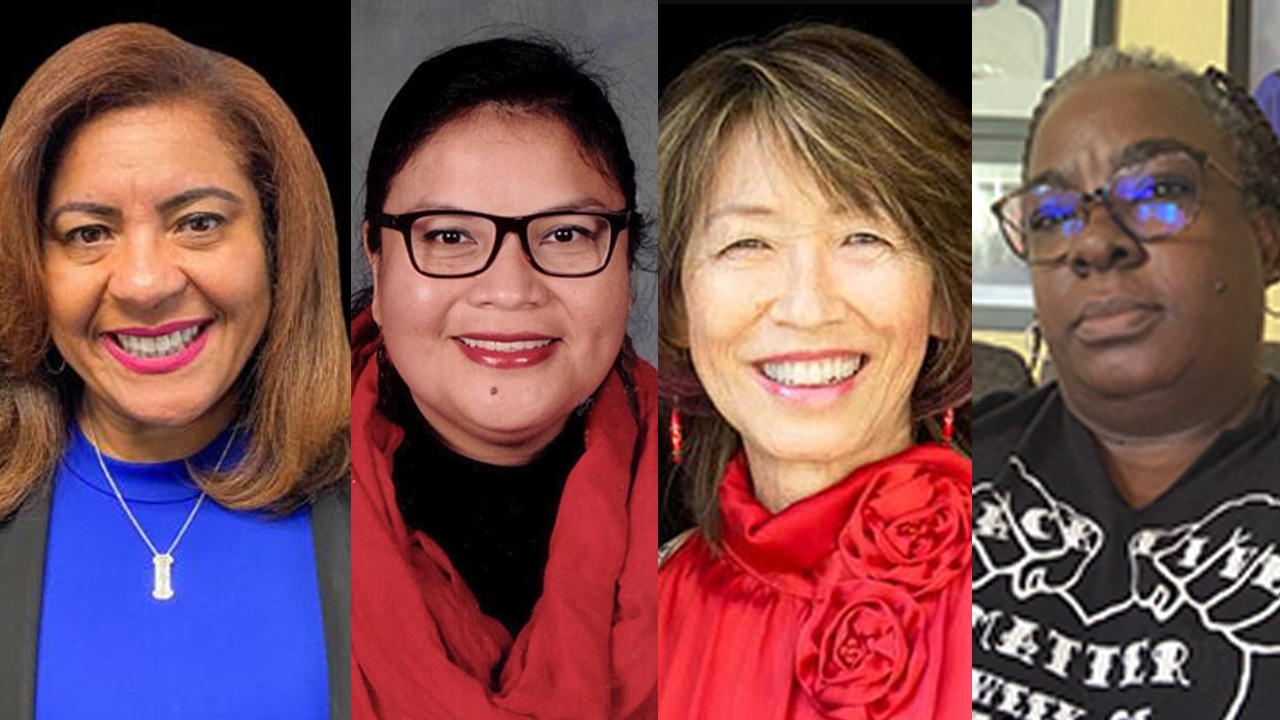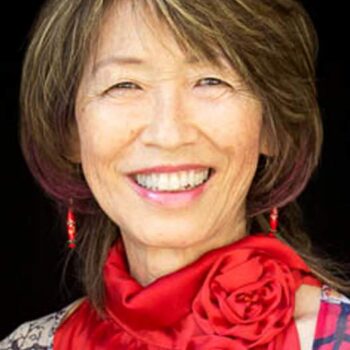United Teachers Los Angeles (UTLA) is an education union that represents 34,000 members and includes a broad spectrum of workers, including K-12 teachers, early educators, adult educators, health and human service professionals, itinerants, and substitutes. Our union is 73 percent women, which is similar to the national demographics for K-12 teachers. And yet, until the past five years, the leadership of the local, state, and national education unions have been largely male dominated.
Over the past 10 years, there has been an intentional shift within education unions nationally to create leadership roles for women and people of color. For the first time, women of color are at the helm of UTLA leadership: as president, officers, and area leaders (the next tier of leadership in UTLA). And yet, even with increasing numbers of women leaders in unions like UTLA, it is not enough to merely elevate women of color into leadership positions. We also need to be supported, nurtured, and given the authority to create and exercise our own power.
I became a union officer 11 years ago, after working as a speech and language pathologist in the school district for 18 years. I never imagined that I would become a union leader — and actually, knew very little about the union when I began — but other women leaders saw the potential in me and encouraged me to run. It has been an honor to be part of the transformational change in UTLA, to evolve and grow in my own style of leadership, and to support the next generation of women leaders. What we have learned over the past years offers valuable lessons for the labor movement. Three of the people who have led the effort to recruit women of color to leadership positions in UTLA — Cecily Myart Cruz, the current President of UTLA, and area leaders George Flowers Lee and Maria Miranda — spoke with me about their organizing efforts, the barriers that still confront women of color, and how to dismantle these barriers to build the future we want. Our discussion has been edited and condensed.
Arlene Inouye: How did you get involved in UTLA?
Georgia Flowers-Lee: I self-identify as a Black female immigrant. I got involved in UTLA because I am a union person, full stop. I’ve never worked a job since high school where I was not unionized. And I got increasingly involved in UTLA because there were small things happening at my site that I thought needed to be addressed. And in union work, every time you say yes to something, somebody asks you to do something else.
Cecily Myart-Cruz: I always knew that I was going to do something that had some type of action. Growing up in Los Angeles, being a part of LA Unified, and going to a high school where, in ’89, I watched my teachers go on strike and jumped the fence to walk with those teachers, I knew that I was destined to do something in the fight for justice.
Maria Miranda: I entered the United States as an undocumented child and didn’t become a US citizen until after college, so I really identify with the immigrant and undocumented communities. I teach in the community where I grew up, and I love working with the students, the families there.
In college, I would do little things, activities here and there, protesting propositions or asking voters not to vote for certain things. I never really saw myself as an activist. I just thought, “Oh, okay. I need to go in and help out here.” I was introduced to organizing by my union in 2012, and I’ve been organizing ever since.
Inouye: Teacher unions, like all organizations, are beset with structural and systemic racism and sexism. Yet, you’ve been area leaders and a president, building up women of color and emerging leaders. Can you share your experience with us?
Myart-Cruz: My model, Duffy, was the West Area Chair. Very quickly, he was like, “One of these days, you’re going to be the West Area Chair.” I was like, “Oh yeah, I’m just teaching my class. I just love teaching. I’m not doing that.” But every time I was given a charge, I would complete it and ask, “Okay, so what else can I do?” To me, it was like Duffy was actually seeing me, even though he was a white Jewish man from New York. We were like opposites, but he saw something in me. I’m always on the lookout for new folks. “Oh, you said yes? Oh, come on in here. There’s more work to be done.”
Miranda: My school, Miramonte, they were like, “Hey, we really need someone to support the chair. We really need you to run.” I said, “Okay, sure, I’ll help.”
It has been a tumultuous time — not with my area but with some of the officers and board members. My experience as a woman in UTLA went from, everyone loves you, to, people don’t really want anything to do with you, to now, okay, “We’re seeing you as a separate person than this other person, because now you’re the Area Chair, you seem to be functioning on your own.” It was really hard for me to go through this period: “Everyone loves you, everyone hates you. Everyone is starting to feel better about you.” And I was just like, “But it’s still me doing the work. What happened?”
Inouye: UTLA is so democratic and there’s all these opportunities, but there’s also the negative too.
Myart-Cruz: It’s not all good. I remember one time, we were at a leadership conference, and I confronted a UTLA director in front of the rest of the folks. I had felt trapped because there was a lot of patriarchy, misogyny, all of that. I even had to hide my pregnancy within UTLA.
Flowers-Lee: When I came on board, I decided to sit in a particular spot because it felt like a neutral zone. I’m not good at playing politics. I sat and I listened and tried to figure out what was happening. It wasn’t until I was elected for that first full term that I started asking questions and just stepping out and speaking a little bit.
I started forming my own conclusions about who was who. I got a couple of stern phone calls, but I’m grown, so I’m okay with that. And as I got to know folks, I was like, “Okay, this is it.” And how do I ground my own self aside from whatever else is happening?
Miranda: When I started as a director at UTLA, there were a lot of unfair things happening, like people not sharing information. I knew I had to speak my mind. It was really hard for me to open up with other people or reach out to other women of color or anyone because I felt like I wasn’t welcomed for so long. But things have changed, and I’m glad they did. We became the first all-female board in the South Area.
Myart-Cruz: We have to listen respectfully even if we disagree. You cannot isolate people. A union is inclusive. It’s solidarity; it’s standing up for one another. But then, there’s this exclusionary piece within the union that no one wants to talk about.
Miranda: I think that’s something that I learned with the staff and faculty at my school. We came together, and we were supporting each other. I don’t think I did anything alone. Every task, I got input from everyone. That was the one thing I had to make sure: that we all were in agreement, that whenever we pushed for something, when we did something, we were all okay with it. Almost 10 years later, I can still count on a lot of people there and say, “This is my team, these are my people.” Because for 10 years, we’ve built this relationship.
Arlene: The principles you’re sharing are just what a union should be; it’s for everybody to really have a part in and be recognized, appreciated, and uplifted.
Miranda: Well, I’ve learned that you do have to be very strategic about who you bring in and who you want to be represented in the union. We need to bring people in. And it doesn’t always work out, right?
We have to be very strategic as to bringing women of color into our union. We have to make time for phone calls, to reach out to them and ask what they need so that they can stay in the union, so that they don’t end up leaving. Because having children and a family to provide for after you’re done with work is really hard. And it’s hard for the union to compete against that. So we have to make it as flexible as possible so that they can still stay in the union.
Flowers-Lee: We also have to cast a wide net. Sometimes, it’s the same six people that do everything. And it’s like, “Look a little further, ask someone else. Give someone else an opportunity.” You don’t know your capacity unless you issue the invitation. You have to reach out to folks, and say, “Would you like to, can you, and what support would you need, to be able to participate?” Open the door for people.
Myart-Cruz: When you look at how many women are in our profession, over 70 percent are women, but when you look at the union leadership, it’s probably over 80 percent white male. So how do we get white males to step aside?
Flowers-Lee: We can also push them aside.
Myart-Cruz: Shirley Chisholm said, “Bring your own damn chair to the table.” We’re going to bring our own chair to the table, but it’s also about making the table expansive to bring in other voices.
Miranda: Yeah, and it doesn’t have to be the voices that agree with you. I want to be clear on that. I want the folks who are, “I don’t know if I see it that way.” I like to see where the conversation will take me. So I never jump right in. I love shaping the work together. Because, to me, that’s what makes collaboration possible.

